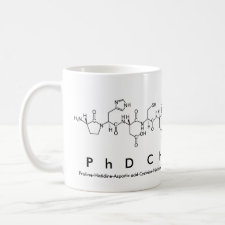
Authors: SŁngŁ «Z, Kip «, Tuncel A
Article Title: Molecularly imprinted polymeric shell coated monodisperse-porous silica microspheres as a stationary phase for microfluidic boronate affinity chromatography.
Publication date: 2019
Journal: Journal of Separation Science
Volume: 42
Issue: (11)
Page numbers: 1962-1971.
DOI: https://doi.org/10.1002/jssc.201801258
Abstract: Molecular imprinting of cis-diol functionalized agents via boronate affinity interaction has been usually performed using nanoparticles as a support which cannot be utilized as a stationary phase in continuous microcolumn applications. In this study, monodisperse-porous, spherical silica particles in the micron-size range, with bimodal pore diameter distribution were selected as a new support for the synthesis of a molecularly imprinted boronate affinity sorbent, using a cis-diol functionalized agent as the template. A specific surface area of 158 m2/g was achieved with the imprinted sorbent by using monodisperse-porous silica microspheres containing both mesoporous and macroporous compartments as the support. High porosity originating from the macroporous compartment and sufficiently high particle size provided good column permeability to the imprinted sorbent in microcolumn applications. The mesoporous compartment provided a large surface area for the parking of imprinted molecules while the macroporous compartment facilitated the intraparticular diffusion of imprinted target within the microsphere interior. A microfluidic boronate affinity system was first constructed by using molecularly imprinted polymeric shell coated monodisperse-porous silica microspheres as a stationary phase. The synthetic route for the imprinting process, the reversible adsorption/ desorption behavior of selected target and the selectivity of imprinted sorbent in both batch and microfluidic boronate affinity chromatography systems are reported
Template and target information: cis-diols
Author keywords: adsorption, microfluidic systems, molecular imprinting, nucleotides, Solid-phase extraction



Join the Society for Molecular Imprinting

New items RSS feed
Sign-up for e-mail updates:
Choose between receiving an occasional newsletter or more frequent e-mail alerts.
Click here to go to the sign-up page.
Is your name elemental or peptidic? Enter your name and find out by clicking either of the buttons below!
Other products you may like:
 MIPdatabase
MIPdatabase









